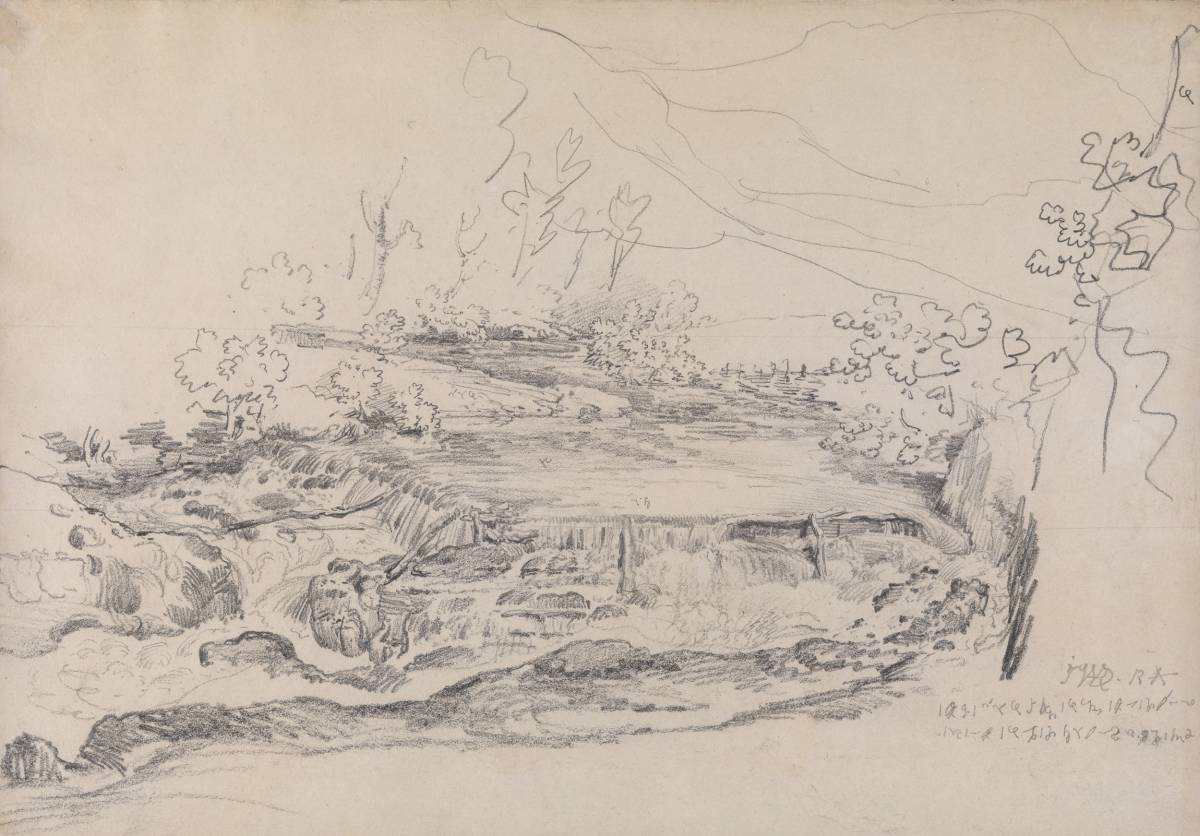Ward’s fascination with the power of nature saw him depict a number of waterfalls in Wales and Scotland. Early in his career, Ward had copied Thomas Girtin’s Cayne Waterfall near Dolgellau, North Wales (now in the British Museum). Covered in Ward’s distinctive shorthand, mostly notes on colour, the present sheet was undoubtedly intended for use in his studio.
Ward’s biographer records that when he was about 5 years old he went into the Kent countryside, helping to deliver cider and was overwhelmed by what he saw: ‘the effect on my infant mind is beyond description...it appeared as if I had got into heaven itself.’ Ward fostered a life-long love of rural Britain, agricultural processes and most importantly the landscape.
Between about 1800 and 1806, Ward attended ‘The Brothers’ one of the many sketching societies set up by artists in order to allow them to study landscapes and other suitably ‘poetick’ subjects in pencil, pen and ink and wash. The Brothers was initially founded by Thomas Girtin to provide a forum for artists to meet and draw. Ward was a member of the great generation of British landscape painters which included Turner, Girtin, Cotman, Constable, Varley and Cox. His watercolour studies show his facility in the medium but he was happiest working in pencil, making rapid, energetic studies of views and individual features as he travelled around Britain. Ward kept these endless on the spot sketches and studies in his studio, using them as inspiration for his exhibition works. Landscape is a major component of Ward’s greatest works such as his Gordale Scar of 1814.

---small_400_244_faf9f5_s.jpg)
